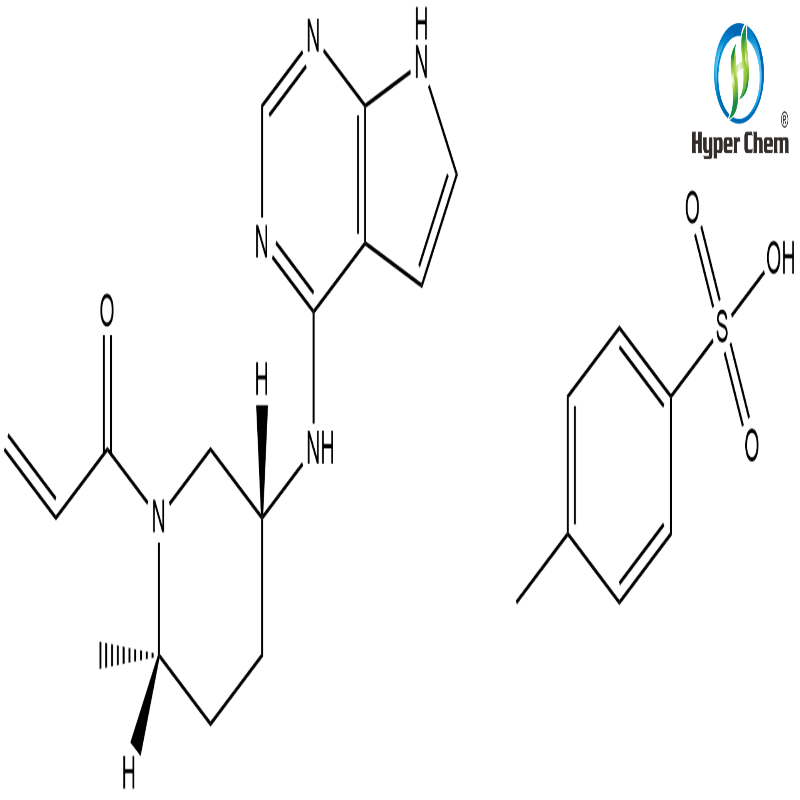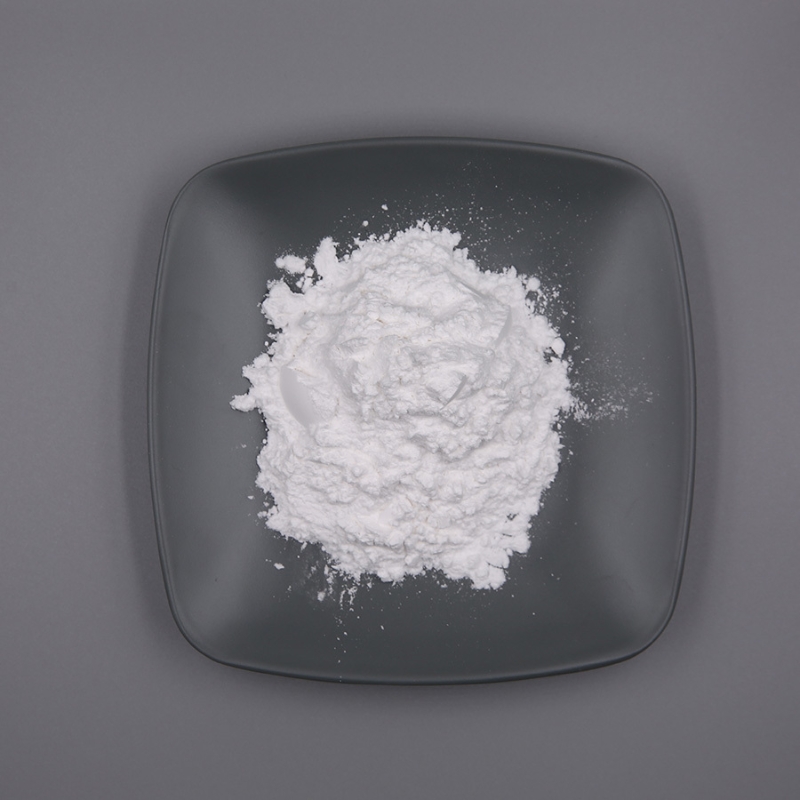Cell . . . Propylene acid slows the development of autoimmune diseases by improving immune regulation and steady state.
-
Last Update: 2020-07-22
-
Source: Internet
-
Author: User
Search more information of high quality chemicals, good prices and reliable suppliers, visit
www.echemi.com
Multiple sclerosis (MS) is one of the most common autoimmune diseases in central nervous system (CNS).in MS patients, the myelin sheath on the surface of neurons in the brain or spinal cord is damaged, the number of pro-inflammatory auto reactive T cells (Th17 and Th1 cells) is increased, the function of regulatory T cells (Treg) is impaired, and the signal transduction of nervous system is disordered, which leads to motor disorders, sensory retardation, visual impairment and other brain, spinal cord and optic neuropathy [1].according to the statistics of the World Health Organization, there were about 1.6-1.95 million MS patients in the world in 2017. At present, MS is still a chronic disease that can not be cured, and its diagnostic means and therapeutic drugs need to be developed and improved urgently [2].recent studies have shown that there is a correlation between the occurrence of autoimmune diseases such as MS and the imbalance of intestinal flora caused by environmental factors such as diet [3].epidemiological studies have confirmed that high-fat diet and obesity are the inducing factors of MS, and are directly related to cellular immune response and CNS lesions [4].intestinal microflora can process the indigestible dietary fiber into short chain fatty acids (SCFAs), which have immunomodulatory effects.studies on animal models of MS and inflammatory bowel disease have shown that some SCFAs, such as propionic acid, can significantly increase the number of intestinal associated Treg cells, reduce the systemic immune response, and have the effect of alleviating the disease [5].therefore, it is a potential and effective method to treat autoimmune diseases such as MS by SCFAs produced by intestinal flora.on March 10, 2020, Aiden haghikia, Professor team of Ruhr University in Bochum, Germany, published a long article in cell magazine: propionic acid shapes the multiple sclerosis disease course by an immunology module By analyzing the structure of intestinal flora and the level of SCFAs in patients with MS, it was found that the decrease of propionic acid in the body is an important pathogenic factor of autoimmune diseases such as multiple sclerosis. Supplementation of propionic acid can enhance immune cell function and improve mitochondrial homeostasis, thus delaying the development of multiple sclerosis.the authors first used high performance liquid chromatography tandem mass spectrometry (LC-MS / MS) to detect whether there were differences in the contents of three SCFAs in blood and feces between MS patients and normal people. It was found that propionic acid levels in all investigated patients with different stages of MS were decreased specifically.subsequently, the authors conducted a microbiological analysis of the intestinal tract between MS patients and normal people to determine whether the difference in propionic acid was due to changes in intestinal flora.the results showed that the relative abundance of some SCFAs producing bacteria decreased and the abundance of some pathogenic bacteria increased in MS patients, although there was no significant difference between the two groups.with additional propionic acid supplementation, the number of Treg cells in MS patients increased significantly, and the number of Th17 cells decreased. In addition, propionic acid supplementation also significantly increased the number of Treg cells in patients with rheumatoid arthritis.therefore, the decrease of the abundance of SCFAs producing bacteria in the intestinal tract of MS patients will reduce the content of propionic acid in vivo, resulting in the disorder of Treg / Th17 immune regulation, and propionic acid supplementation can significantly restore the imbalance of immune homeostasis in MS patients.in addition, propionic acid supplementation can specifically improve the inhibitory ability of Treg cells in MS patients, which depends on the enhancement of Treg cell function rather than the increase of cell number.through the longitudinal evaluation of the clinical data of MS patients after long-term supplementation of propionic acid, the authors found that propionic acid supplementation can effectively reduce the annual recurrence rate of MS patients and delay the development of the disease. Long term propionic acid supplementation can induce the increase of subcortical gray matter by increasing the content of propionic acid in cerebrospinal fluid, thus improving the disease.further studies showed that propionic acid supplementation could induce the expression of Treg related genes and the secretion of IL-10 in the intestinal tract of MS patients, and IL-10 was necessary for the role of propionic acid in the regulation of Treg function. subsequently, the authors continued to study the mechanism of propionic acid enhancing immune function in MS patients. first of all, the authors found that the mitochondrial function of Treg cells in MS patients was not only impaired, but also showed morphological abnormal phenotype. Long term propionic acid supplementation could restore the respiratory function and abnormal morphology of mitochondria in MS patients. these findings suggest that abnormal mitochondrial function and integrity are important factors in the pathogenesis of MS, and propionic acid can alleviate the pathological reaction of MS patients by improving mitochondrial homeostasis. secondly, through the gene expression analysis of peripheral blood cells of MS patients before and after propionic acid supplement, the authors found that the expression of T cell specific genes, nucleotide excision repair pathway related genes, T cell receptor signal related genes and T cell activation related genes were up-regulated; IL-10 and TNF were the two key interaction hubs in the gene regulatory network of MS patients after propionic acid supplementation. In addition, the expression patterns of many mitochondrial related genes were changed after propionic acid treatment. These changes suggest that propionic acid supplementation can enhance metabolic efficiency in MS patients, which is consistent with the previous finding that long-term propionic acid supplementation can activate mitochondrial respiration in Treg cells. Figure 1 Propionic acid supplementation can delay the development of MS by improving immune homeostasis. In conclusion, this study found that the decrease of propionic acid caused by intestinal microbial imbalance is a key factor in the development of multiple sclerosis. Propionic acid supplementation can activate the function of Treg cells, improve the symptoms of immune disorders and neurodegenerative diseases, which is an effective treatment for autoimmune diseases such as multiple sclerosis Means. the importance of this study is that it is the first time to reveal the immunomodulatory function of propionic acid by linking intestinal microorganisms with brain immune axis, and to verify the therapeutic effect of propionic acid supplementation on autoimmune diseases in clinic. original link: for recruitment information, please click the link: recruitment summary of research group in the first half of 2020 (0101-0307) 2020-03-08 in the second half of 2019 recruitment summary of research group (0701-1231) 2020-01-26 plate maker: Ke reference 1. Haghikia a, hohlfeld R, gold R, et al. Therapies for multiple sclerosis: translational achievements and outstanding needs. Trends in molecular medicine, 2013, 19(5): 309-319.2. Brownlee W J, Hardy T A, Fazekas F, et al. Diagnosis of multiple sclerosis: progress and challenges. The Lancet, 2017, 389(10076): 1336-1346.3. Berer K, Gerdes L A, Cekanaviciute E, et al. Gut microbiota from multiple sclerosis patients enables spontaneous autoimmune encephalomyelitis in mice. Proceedings of the National Academy of Sciences, 2017, 114(40): 10719-10724.4. Olsson T, Barcellos L F, Alfredsson L. Interactions between genetic, lifestyle and environmental risk factors for multiple sclerosis. Nature Reviews Neurology, 2017, 13(1): 25.5. Haghikia A, Jörg S, Duscha A, et al. Dietary fatty acids directly impact central nervous system autoimmunity via the small intestine. Immunity, 2015, 43(4): 817-829.
This article is an English version of an article which is originally in the Chinese language on echemi.com and is provided for information purposes only.
This website makes no representation or warranty of any kind, either expressed or implied, as to the accuracy, completeness ownership or reliability of
the article or any translations thereof. If you have any concerns or complaints relating to the article, please send an email, providing a detailed
description of the concern or complaint, to
service@echemi.com. A staff member will contact you within 5 working days. Once verified, infringing content
will be removed immediately.







